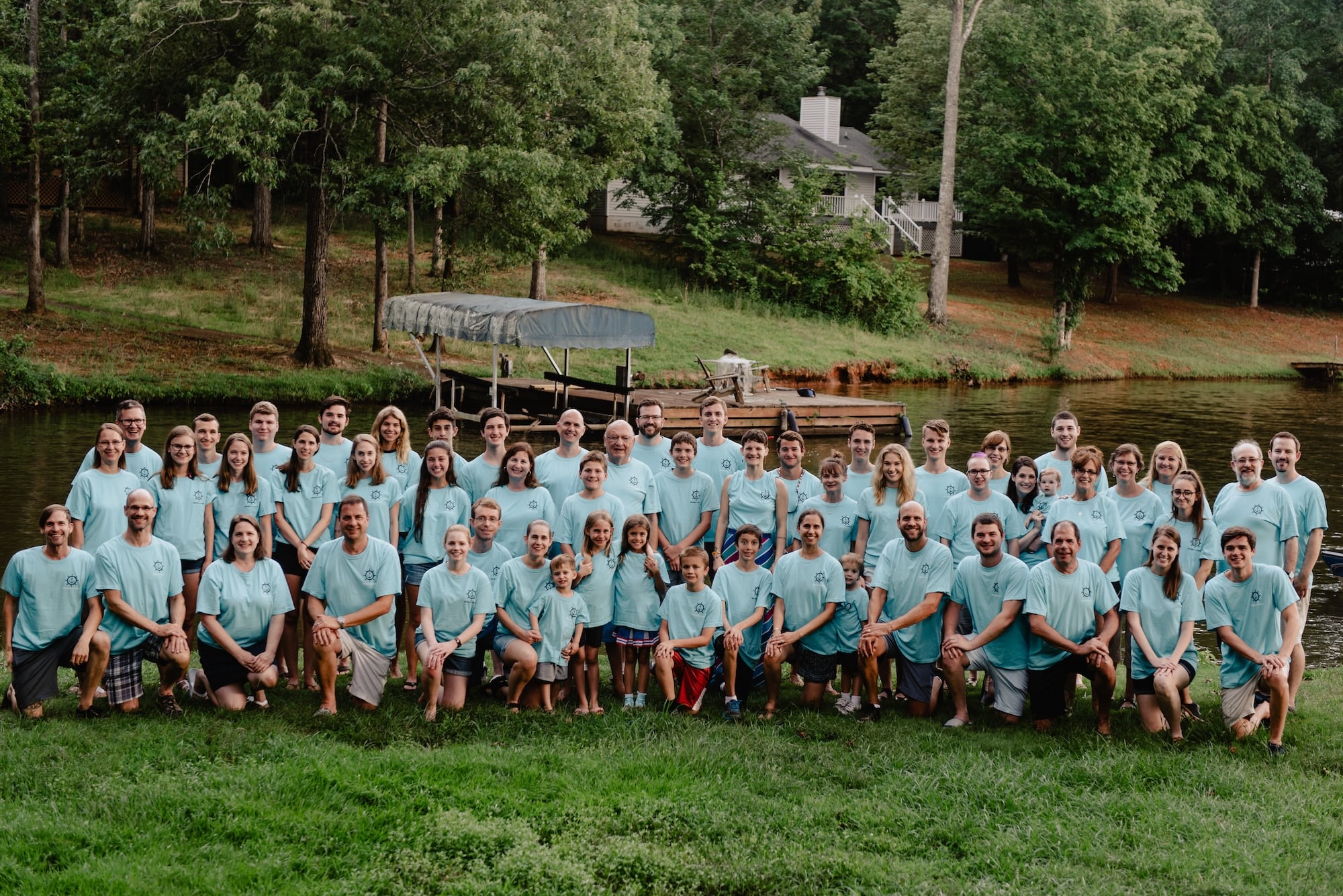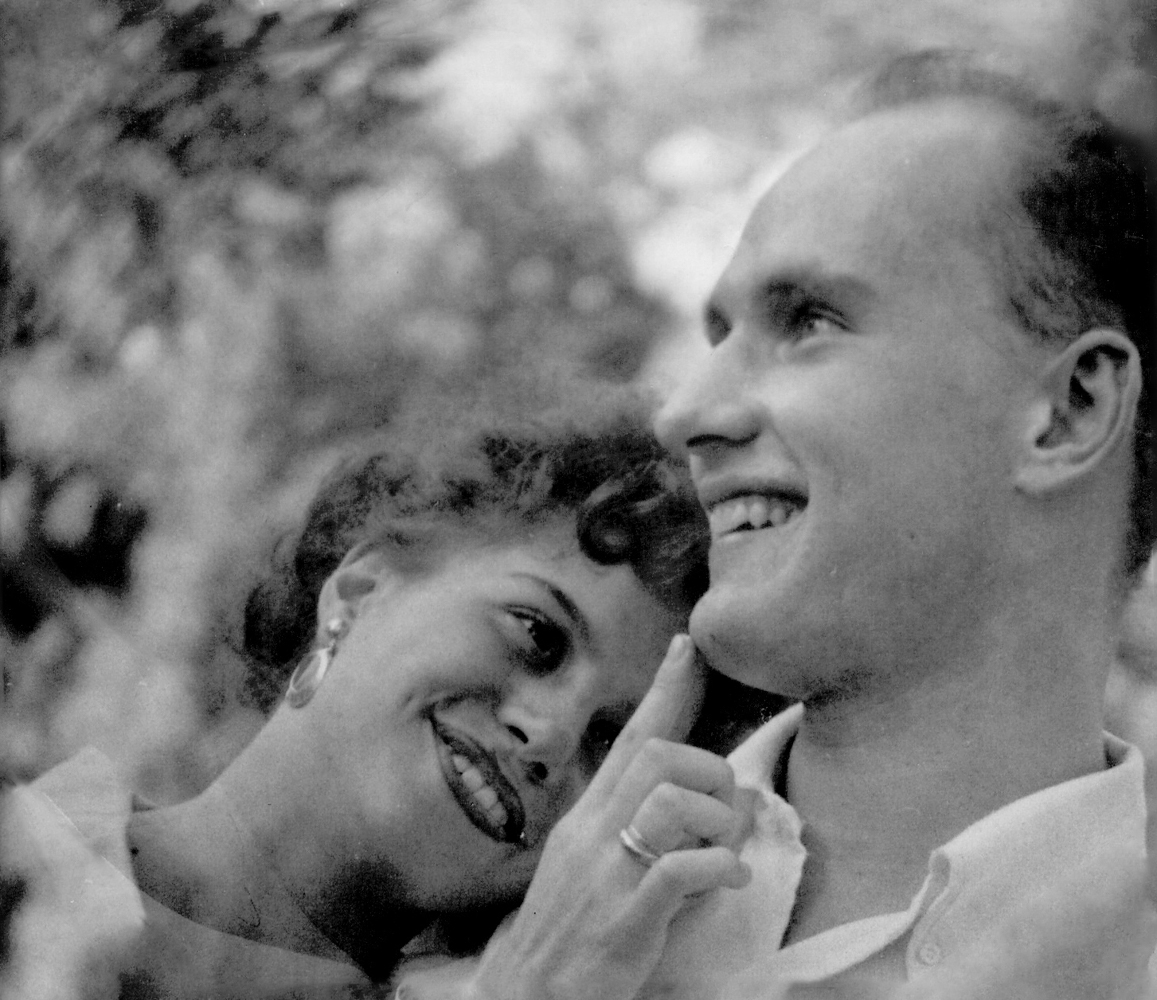
Who We Are
Who We Are
The Bardos Foundation is named in honor of Denes and Agota Bardos, two Hungarian refugees who escaped Soviet persecution to make a life together in America. The Bardos Foundation upholds the values they reflected to everyone they touched by providing aid to refugees and immigrants searching for a better life.
Denes and Agota's descendants follow in their footsteps by managing the grant programs of the Bardos Foundation today.

The Bardos Story

Denes Bardos and Agota (Agi) Szabo were born in Budapest, Hungary in the late 1930s. Agi and Denes met in French class in a high school for music students. Agi played piano and Denes the double bass. Denes tells the story that he sauntered into the classroom with just a pencil tucked behind his ear, when he noticed a poised and tidy, brown-haired girl sitting at a desk. Her books were neatly covered in paper and she had all her class materials organized, and from that moment, he was hooked. When he asked her if he could walk her home, she told him that he would have to ask her father for permission, so eventually he did, was granted permission to walk Agi home, and thus began their story.
At any other point in history, it might've been just a sweet love story about a couple of teenagers, but Hungary in the mid 1950's was under communist rule, and tensions of the oppressed country would soon reach a breaking point. In late autumn of 1956, students gathered near the radio building in an attempt to broadcast their demands for freedom, Denes and Agi among them.
Agi was familiar with the inside of the radio building. A gifted musician, she had played piano on the radio regularly, so when she noticed a particular second floor window open just a crack, she knew that the communist secret police were about to open fire on the unarmed students below. She pulled Denes away just in time to save his life, as the bullets ripped through where they had just been standing. The revolution had begun, and they were in the middle of it.
Quick decisions had to be made over the next few days. Denes and Agi knew that they had to leave and try to make it to a free country. The secret police were going to be looking for them, so they couldn't even say goodbye to their parents or siblings to keep them safe. It was time to escape; they left with the clothes on their backs and utter determination in their souls.
It would be a treacherous 200 km journey through a tumultuous Hungary thrown into revolution culminating in the infamous iron curtain separating freedom from oppression, an expanse of barbed wire fencing, landmines, watchtowers, and armed guards with attack dogs. These courageous teenagers knew that if they were caught trying to escape, their chances of survival were very slim to none.
They didn't even make it to the border before they were caught and thrown in a jail just east of the Austrian border. End of story? Not quite. Something about fighting for your freedom kicked in, and Agi told off the prison guard, who was a Hungarian soldier. "How could you be doing this to your own countrymen?! We are Hungarians!" Agi's words must have struck a chord because later that night the jail door lock "wasn't working" and the teenagers were able to mount a prison break, hungry, tired, and terrified, but determined.

When they came closer to the border, they could see the sweeping watchtower lights, and armed guards with dogs pacing on alert. What they couldn't see were the lurking landmines. One of the other brave young revolutionaries with them knew that he had no chance of survival if he was caught again, so he told the others that he would go first, and they should step directly in his snowprint footsteps. If he was still standing, others that followed would be too. They followed him, eventually made it to the barbed wire fence, lifting it with a stick and lying on their backs to shimmy and be pushed and pulled through. And then running. It was a miracle, but they survived. They had made it to a free country.
Refugee camps were set up in Austria, where Denes and Agi married. They decided to come to America where they and over a thousand other Hungarian refugees pulled into the New York harbor aboard a Navy transport ship on Valentine's Day, 1957. Not a dry eye was on the ship when they caught sight of the Statue of Liberty. Liberty at last.
The "easy part" had finally come. Learn English to a college level in under three months, earn bachelor's, master's, and PhD degrees, revolutionize orthopedic implant methodologies, raise 10 children together, put them all through college, and thrive in a new, foreign land far from everything and everyone they'd ever known. Refugees fight with their blood, sweat, and tears to make it to America only to find an entirely new set of obstacles awaiting them in the promised land, but they don't have to go through it alone. The American Red Cross, Catholic Charities, and just darn friendly neighbors all helped Denes and Agi succeed in their new life in the United States, and that's exactly what the Bardos Foundation continues to do today.